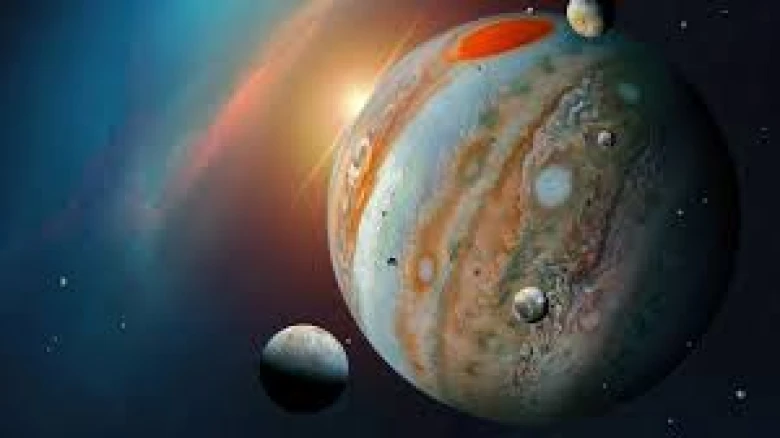Sports

Digital Desk: Jupiter will make its closest approach to Earth in
59 years this week, which could be a treat for stargazers. Jupiter, which is
600 million miles from Earth at its furthest point, will pass within 367
million miles of Earth on September 26.
The event is scheduled to occur when Jupiter reaches opposition,
which means it will rise in the east as the Sun sets in the west.
According to NASA, great views of the gas giant will be
available for the entire night of September 26.
Why is it such a rare
occurrence?
Jupiter and Earth do not
orbit the Sun in perfect circles, so they cross each other at varying distances
throughout the year. The distance between Earth and Jupiter at their closest is
367 million miles, about the same as it was in 1963, making the event rare and
worth watching. At its furthest point, the massive gas giant is nearly 600
million miles away from Earth.
How
should it be viewed?
"With
good binoculars, the banding (at least the central band) and three or four of
the Galilean satellites (moons") should be visible," said Adam
Kobleski, a NASA research astrophysicist. An ideal viewing location, according
to the astrophysicist, will be dark, dry, and elevated.
He also
advised stargazers to take advantage of clear skies on either side of the date
(September 26), as the view will be spectacular both before and after the rare
event.
Scientists believe that studying Jupiter will lead to
ground-breaking discoveries about the formation of our solar system. NASA's
Juno spacecraft was launched in 2011 and arrived five years later. Since 2016,
the spacecraft has provided incredible images of the gas giant, and the
program has been extended until 2025, or until Juno's life expires.
Leave A Comment